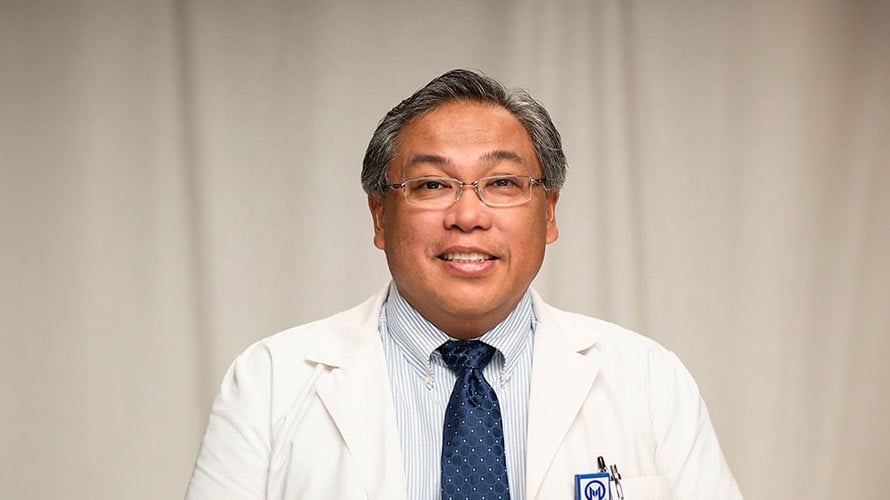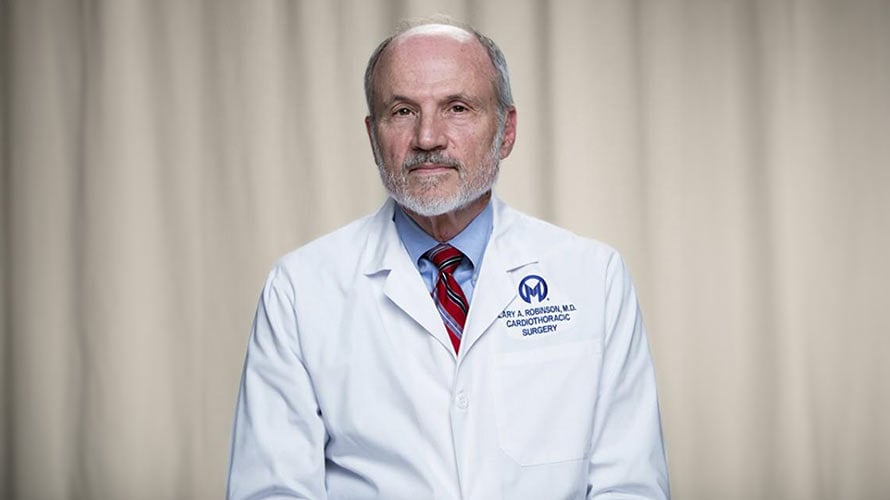Lung Cancer
One of the most frequently diagnosed cancers worldwide, lung cancer develops when cells that line the airways undergo abnormal changes. As the atypical cells grow and divide, they may cluster together and form malignant tumors, which can potentially invade nearby tissues. If tumor cells enter the bloodstream or lymphatic system, lung cancer can also spread to distant areas of the body.
What causes lung cancer?
The vast majority of lung cancer cases are traced to previous exposure to tobacco smoke, which contains a dangerous cocktail of toxic chemicals and carcinogens that can potentially damage nearly every organ in the body. The harmful exposure can occur firsthand among smokers or secondhand among nonsmokers. Either way, when tobacco smoke is inhaled, it irritates and damages lung tissues. Over time, the damage can cause persistent coughing, difficulty breathing and abnormal cellular DNA changes that lead to the development of lung cancer.
Although the link between tobacco smoke and lung cancer has been clearly established, other causes are still being investigated by scientists in the general medical community. For instance, lung cancer sometimes occurs in people who have never smoked and have never been exposed to secondhand tobacco smoke. As such, the precise mechanisms by which lung cancer develops are not yet fully understood.
What are the symptoms of lung cancer?
In many cases, early-stage lung cancer does not produce noticeable symptoms. Additionally, a lung tumor may not become visible in a chest X-ray until it grows very large. For these reasons, it is especially important for current and prior smokers—as well as anyone who has been exposed to secondhand smoke—to pay close attention to possible warning signs, no matter how vague or harmless they might seem. As with any type of cancer, an early lung cancer diagnosis is the key to achieving the best possible outcome and quality of life.
Some common lung cancer symptoms include:
- A new cough that doesn't go away
- Coughing up blood
- Wheezing
- Shortness of breath
- Vocal hoarseness
- A high-pitched whistling sound when inhaling or exhaling
- Recurrent episodes of bronchitis or pneumonia
What are the different types of lung cancer?
Along with the patient’s overall health and personal preferences, the specific type of lung cancer diagnosed is an important factor considered by physicians when devising a treatment plan. Lung cancer is categorized based on the appearance of the cancerous cells when viewed under a microscope. There are two main types:
Non-small cell lung cancer (NSCLC)
NSCLS represents the majority of lung cancer cases. An umbrella term used to refer to a group of slow-growing cancers with similar characteristics, NSCLC can be further subtyped as:
- Squamous cell carcinoma – Develops in the squamous cells that line the airways (bronchi)
- Adenocarcinoma – Develops in the mucus-producing cells that line the air sacs (alveoli)
- Large cell carcinoma – Develops in large cells in any part of the lungs
Small cell lung cancer (SCLC)
Less common than NSCLC, SCLC occurs almost exclusively in heavy smokers. This aggressive cancer develops in the bronchi, grows quickly, forms large tumors and spreads to other organs and tissues, such as lymph nodes. Sometimes referred to as oat cell cancer, SCLC is characterized by small, oval-shaped cells that resemble oat grains when viewed under a microscope. In many cases, SCLC is not diagnosed until it spreads beyond the lungs.
How is lung cancer treated?
Lung cancer treatment can vary based on the patient’s unique diagnosis and needs. Many patients elect an approach that incorporates one or more therapies, such as:
- Surgery – A surgeon may remove a visible tumor along with a margin of surrounding healthy lung tissue and some nearby lymph nodes.
- Chemotherapy – Powerful cancer-fighting drugs can be administered orally or intravenously before surgery to shrink a tumor and make it easier to remove, after surgery or radiation therapy to target cancer cells that may have survived the treatment or as a standalone therapy for locally advanced or metastatic lung cancer.
- Radiation therapy – Radiation therapy can be delivered directly to lung cancer cells from a linear accelerator located outside the patient’s body or from implants surgically implanted near or inside a lung tumor.
- Immunotherapy – A class of immunotherapy drugs known as checkpoint inhibitors may be used to treat NSCLC by “switching on” the checkpoint proteins on the body’s immune cells to trigger an immune response to the cancer.
NSCLC is often treated with surgery, chemotherapy, radiation therapy and/or immunotherapy. SCLC is typically treated with a combination of chemotherapy and radiation therapy.
Moffitt's approach to treating lung cancer
As a high-volume cancer center, Moffitt Cancer Center treats all types and stages of lung cancer, including advanced and uncommon malignancies. Our multispecialty team takes an individualized approach to lung cancer treatment, helping to ensure that each patient’s unique needs are fully met.

"Everybody is totally different than you. And [Moffitt] treats you that way and your treatment is designed that way - for you."
Request an AppointmentIn our renowned Thoracic Oncology Program, our patients can benefit from:
Opportunities to receive multiple expert opinions in a single location
Our outstanding lung cancer team includes surgical oncologists, medical oncologists, radiation oncologists, pulmonologists, pathologists, radiologists, pain management specialists and supportive care specialists. These highly focused specialists meet collectively as a tumor board to review and monitor complex cases. Each patient receives a tailored treatment plan coordinated by experts across multiple disciplines.
The current standard of care as well as the latest cutting-edge therapies
Our comprehensive lung cancer program offers a wide variety of treatments, including traditional options such as surgery, chemotherapy and radiation therapy, along with groundbreaking techniques such as robotic-assisted surgery, immunotherapy and photodynamic therapy. Through our robust clinical trials program, our patients can access revolutionary treatments that are not yet available in other settings. We also have a comprehensive Lung Cancer Screening and Surveillance Program that ranks among the best in the United States.
Our groundbreaking cancer research and bench-to-bedside approach
At Moffitt, we are committed to continually improving lung cancer treatment for all current and future patients. Toward that end, we perform extensive research and work hard to quickly translate our findings into tangible benefits for our patients. In recognition of our efforts, we have earned the prestigious Comprehensive Cancer Center designation from the National Cancer Institute.
To learn more about lung cancer, contact Moffitt Cancer Center through our convenient new patient registration form or call 1-888-663-3488 to speak directly with a lung cancer specialist. We’re here to answer your questions at any point during your lung cancer journey.
Support the Future of Thoracic Oncology Research and Treatment
When you support Moffitt Cancer Center, you help make breakthrough thoracic research and innovative treatments possible. Give now to support the Thoracic Oncology Program. For more information, call toll-free 1-800-456-3434, ext. 1403.
Helpful Links:
Inspiring Stories
Lung Cancer
- Signs and Symptoms
- Diagnosis
- Treatment
- FAQs
- Lung Cancer Early Detection Center
- Lung Cancer Screening and Surveillance Program
- Lung Nodules
- Lung Surveillance Clinic
- Metastatic Lung Cancer
- Recurrence
- Survival Rate
- Your Lung Cancer Specialists
- Lung and Thoracic Tumor Education (LATTE)
- Thoracic Clinic Updates
- Insurance & Financial Information



